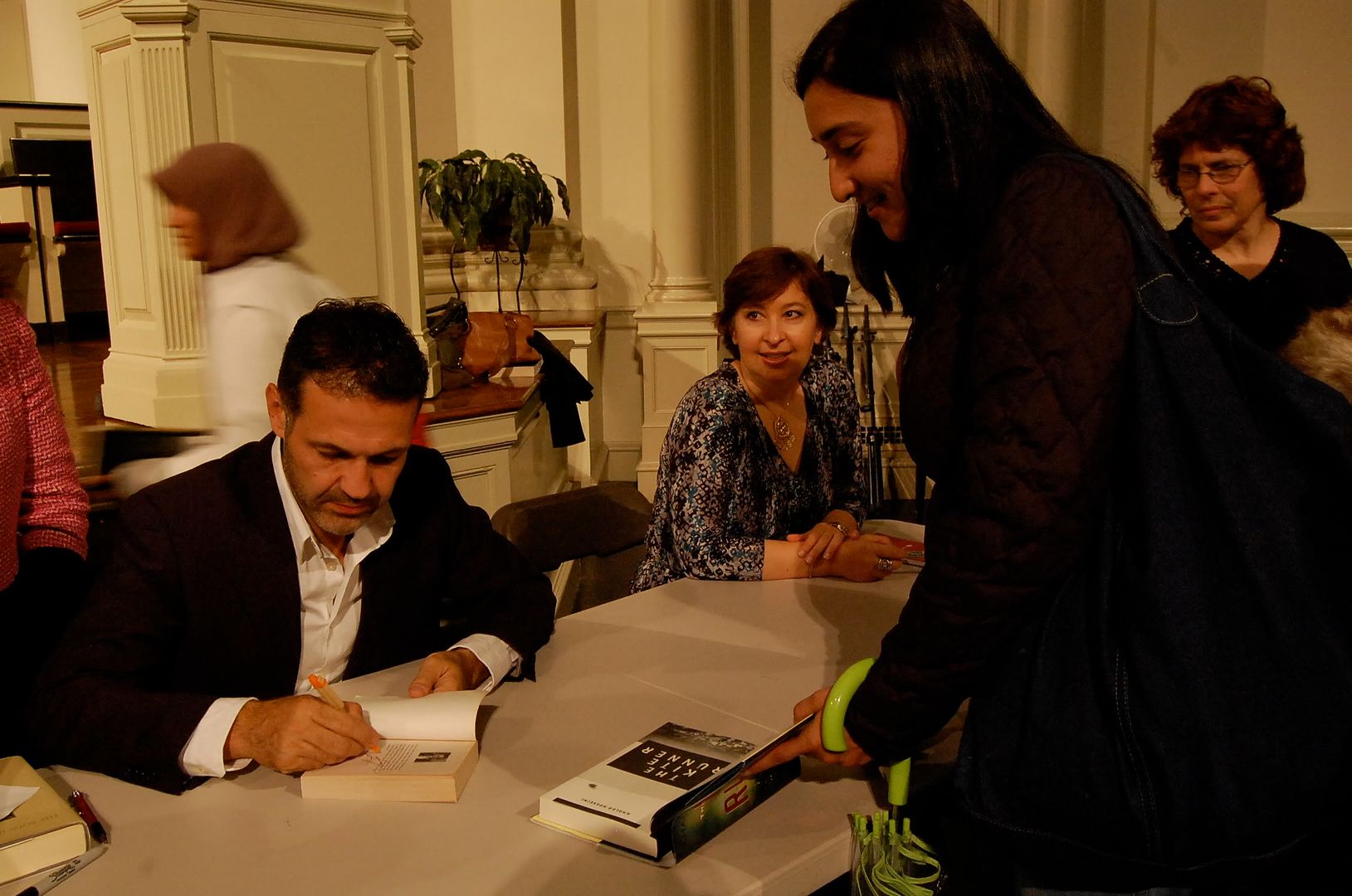Khaled Hosseini's Humility and Sincerity
October 6, 2009 - 7:55 pm
Hendricks Chapel was filled to the brim last night. In its pews sat a cross-section of Syracuse society with only one objective in mind: to hear from Khaled Hosseini. Yesterday marked the beginning of the Rosamond Gifford Lectures. It kick-started the yearlong series with Hosseini’s participation.
Hosseini rose to international fame with his best selling first novel, The Kite Runner, a story of boyhood friendship set in war-torn Afghanistan and one man’s quest to “find a way to be good again.” Since then he has followed his fortuitous success with A Thousand Splendid Suns, a novel focusing this time on the plight of Afghan women.

While not a starstruck fan, I was there because my housemate was. Plus, I did have a copy of his book, and I’d love to hear more from the man who wrote it. I didn’t know what to expect from the talk, the websites and campus posters weren’t very specific, but I knew that with a name like Khaled Hosseini, time spent not confronted with homework would be worth it.
The lecture took the form of an informal interview. Hosseini’s interviewer was Firoozeh Dumas, author of Funny in Farsi: A Memoir of Growing Up Iranian in America, an essay compilation that earned her a nomination for the Thurber Prize for American Humor.
Dumas wore the mantle of interviewer well, injecting candor and humor into an otherwise somber lecture. Her friendship with Hosseini was a secret weapon she wielded to scratch below the surface of the internationally acclaimed author before her.
Prompted by Dumas, Hosseini’s interview traversed questions about writing to his efforts in Afghanistan. On Afghanistan, Hosseini emphasized continued concern from the audience and the growing interdependence of different countries around the world.
“No longer do we live in a world where what happens on the other side of the world doesn’t affect us. The well-being of one part of the world, affects the rest of the world,” he said with conviction. His thoughts on Afghanistan portrayed a country that was not just another headline on the daily paper, but a reality constantly unfolding, with repercussions that can be felt even in our backyards.
Through his lecture, he gave his audience a glimpse into what it means to be Afghan. He clarified two common misconceptions: No, it’s not the same as being Iraqi. And no, Afghans are not anti-American.
On writing, Dumas asks an innocent question that uncovered an honest, but surprising answer. “Do you think anybody can write?” Dumas asked. “No.” Hosseini replied. For him, the instinct of a writer “to create tension, to understand there is something there” is born, not made.
In the two hours Dumas and Hosseini bantered, Hosseini revealed a subtle humor and a self-effacing personality. On his success publishing The Kite Runner he said, “Truth is, luck had a lot to do with it,” even though earlier in the session, Hosseini had casually mentioned his novel was produced mostly from 5:30 to 8:30 a.m., just before his first appointment as an internist at Cedar Sinai. When asked if he planned a literary device in his novel, he openly admits, “Many metaphors in my books are completely unintended.”
After the interview, my housemate and I walked leisurely under a drizzling rain. As we processed the two hours inside the chapel, she said something that for me captured the night's guest of honor. She said, "He was honest...and earnest," a combination that reflects as much in his writing as his physical presence.
Go See It:
Interested to find more lectures coming to SU? Log onto: http:/lectures.syr.edu.

Muse House is produced by graduate students in the Goldring Arts Journalism program, with the aim of shining a brighter spotlight on the Syracuse and CNY arts and culture scene.
More by this author
More from this blog
Related tags
Popular tags on recent stories
By visiting this site, you agree to the Terms of Use
Produced by S.I. Newhouse School of Public Communications,
Syracuse University, 215 University Place, Syracuse, NY 13244






Post new comment